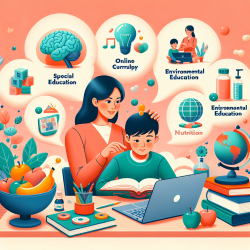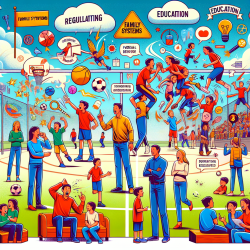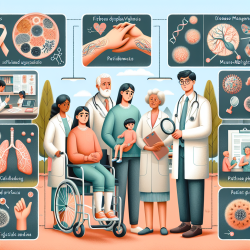Introduction
In the ever-evolving field of special education and therapy, staying informed about global educational trends is crucial. A recent study titled "Content analysis of health-related subjects in the K12 school curricula of Japan, Indonesia, Philippines, Guam, Micronesia, Marshall Islands, Palau, and Fiji" offers valuable insights that can enhance your practice. This blog explores how the findings from this research can be leveraged to improve therapy practices and encourages further exploration into the subject.
Key Findings from the Study
The study examined health-related topics in K12 curricula across eight Asia-Pacific countries, focusing on hygiene, mental health, nutrition-oral health, and environmental education related to global warming. Here are some key takeaways:
- Hygiene: While individual practices like handwashing are widely covered, environmental aspects such as clean water and pollution are less emphasized.
- Mental Health: Two approaches were identified: a cultural-based approach focusing on morals and religion, and a science-based approach emphasizing health education.
- Nutrition-Oral Health: Education varies widely, with some countries focusing on health and nutrition, while others integrate it into social sciences and home economics.
- Environmental Education: Climate change is a common topic, but other environmental issues are less frequently addressed.
Implementing Findings in Therapy Practice
As a practitioner, understanding these educational trends can help tailor therapy sessions to align with students' learning environments. Here’s how:
- Incorporate Cultural Context: Recognize the cultural and religious contexts in which students learn about mental health. This can help in developing more relatable and effective therapy strategies.
- Focus on Environmental Hygiene: Encourage discussions around environmental hygiene to fill gaps left by the current curricula. This can be particularly beneficial for students in regions where environmental education is lacking.
- Enhance Nutrition Education: Utilize the diverse approaches to nutrition education to create engaging therapy sessions that promote healthy eating habits and oral health.
Encouraging Further Research
The study highlights the need for a more structured approach to health education in schools. Practitioners are encouraged to delve deeper into these findings and explore how they can be applied to improve therapy outcomes. Further research could focus on:
- Developing standardized mental health curricula that integrate cultural and scientific perspectives.
- Creating comprehensive environmental education programs that address both natural disasters and pollution.
- Investigating the impact of culturally tailored nutrition education on students’ health behaviors.
Conclusion
By integrating the insights from this study into therapy practices, practitioners can better support students in developing healthy behaviors. The diverse approaches observed across the Asia-Pacific region offer a wealth of strategies that can be adapted to suit different educational and cultural contexts.
To read the original research paper, please follow this link: Content analysis of health-related subjects in the K12 school curricula of Japan, Indonesia, Philippines, Guam, Micronesia, Marshall Islands, Palau, and Fiji.










